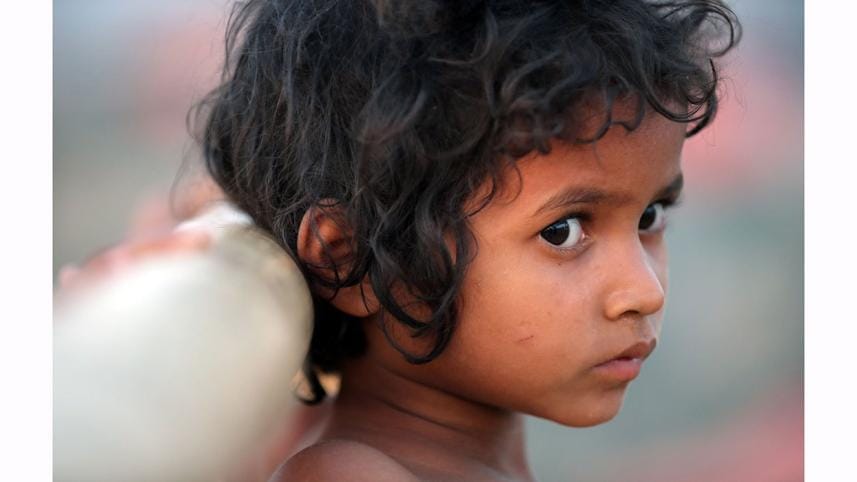145,000 Rohingya children going to Unicef's learning centres

More than 145,000 Rohingya children – living in Cox's Bazar camps – are now going to Unicef-supported learning centres, as a new school year begins.
Following a huge effort from the humanitarian community to construct a network of around 1,600 learning centres throughout the camps – providing education to children who fled violence in Myanmar, attention is now turning to reach out to others who still lack access.
The aim is to eventually reach 260,000 children this year through an extended network of 2,500 learning centres run by 5,000 teachers and Rohingya volunteers, according to a press release of Unicef yesterday.
"The scale of the Rohingya refugee crisis demanded a rapid response," said Edouard Beigbeder, Unicef representative in Bangladesh. "But we were only able to respond to immediate needs and could not reach every child. This year we are scaling up services to reach more children, while focusing on improving the quality of education each child receives."
The drive to construct more learning centres is part of a far-reaching and comprehensive set of initiatives announced by Unicef to increase access to quality education for children living in the camps.
"I've been coming to class for almost a month now," said Minara, 11, who studied till class four in Myanmar, but dropped out after arriving in Bangladesh because the learning centres she attended were muddy and too hot.
"It's nice here," she said as she surveyed the new classroom in Kutupalong camp run by Unicef partner CODEC. "It doesn't have a muddy floor."
Motalab, 12, who is blind, is one of about 600 children with disabilities identified to attend school. Last year his teacher convinced his mother to allow him to attend class. Since returning to class his mood has visibly brightened, he is more outgoing and says he enjoys poetry.
The quality of education in the camps is also being improved through expanded learning modules and lesson plans. New and existing teachers are participating in development training programmes.
"Many children have suffered gunshot wounds and extreme violence, restricting their mobility and access to services.
We see many children with mixed learning abilities, physical disabilities, visual impairment and speech difficulties," said Iffat Farhana, education officer, Unicef Cox's Bazar. "Each of these children has a right to education. With more learning centres and more teachers, Unicef hopes to reach every child to help them learn, grow and realise their potential."
Unicef is also targeting adolescents with educational training to develop their knowledge and vocational skills.
Currently 97 percent of adolescents and youths aged 15 to 24 do not receive any education in the refugee camps. This group is extremely vulnerable to child marriage, child labour, human trafficking, abuse and exploitation.
A Unicef report last year warned that without urgent action, these teenagers are at risk of becoming a lost generation.
"It is through these targeted interventions that Unicef is striving to provide education to the hardest-to-reach children, many of whom have severe vulnerabilities," Beigbeder said. "Our aim is to ensure they can be equipped with the knowledge and skills they require to navigate their future."



 For all latest news, follow The Daily Star's Google News channel.
For all latest news, follow The Daily Star's Google News channel.
Comments